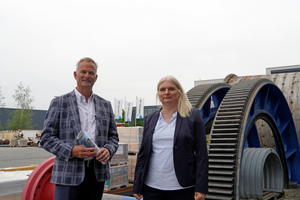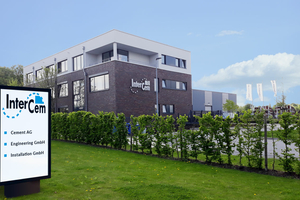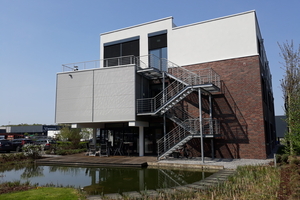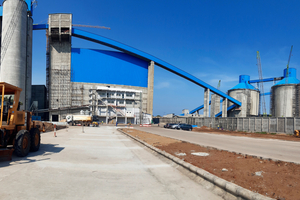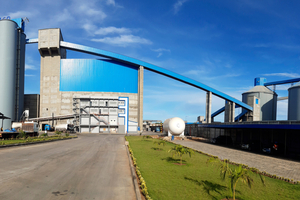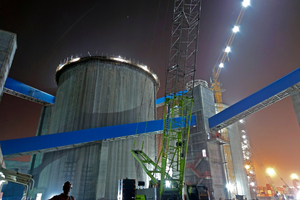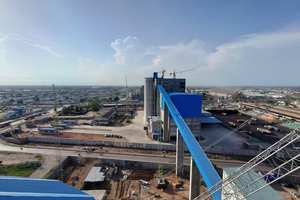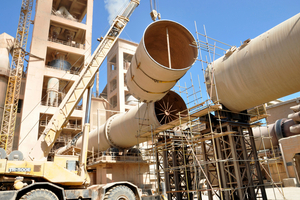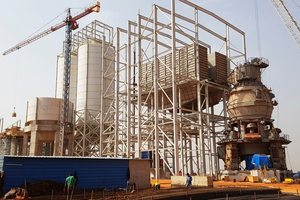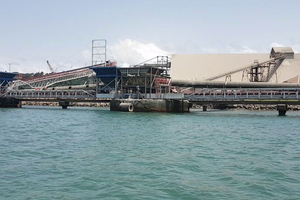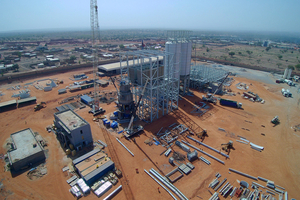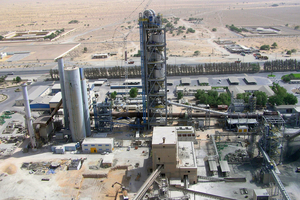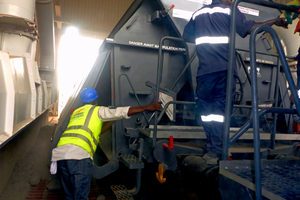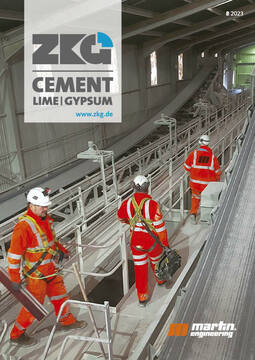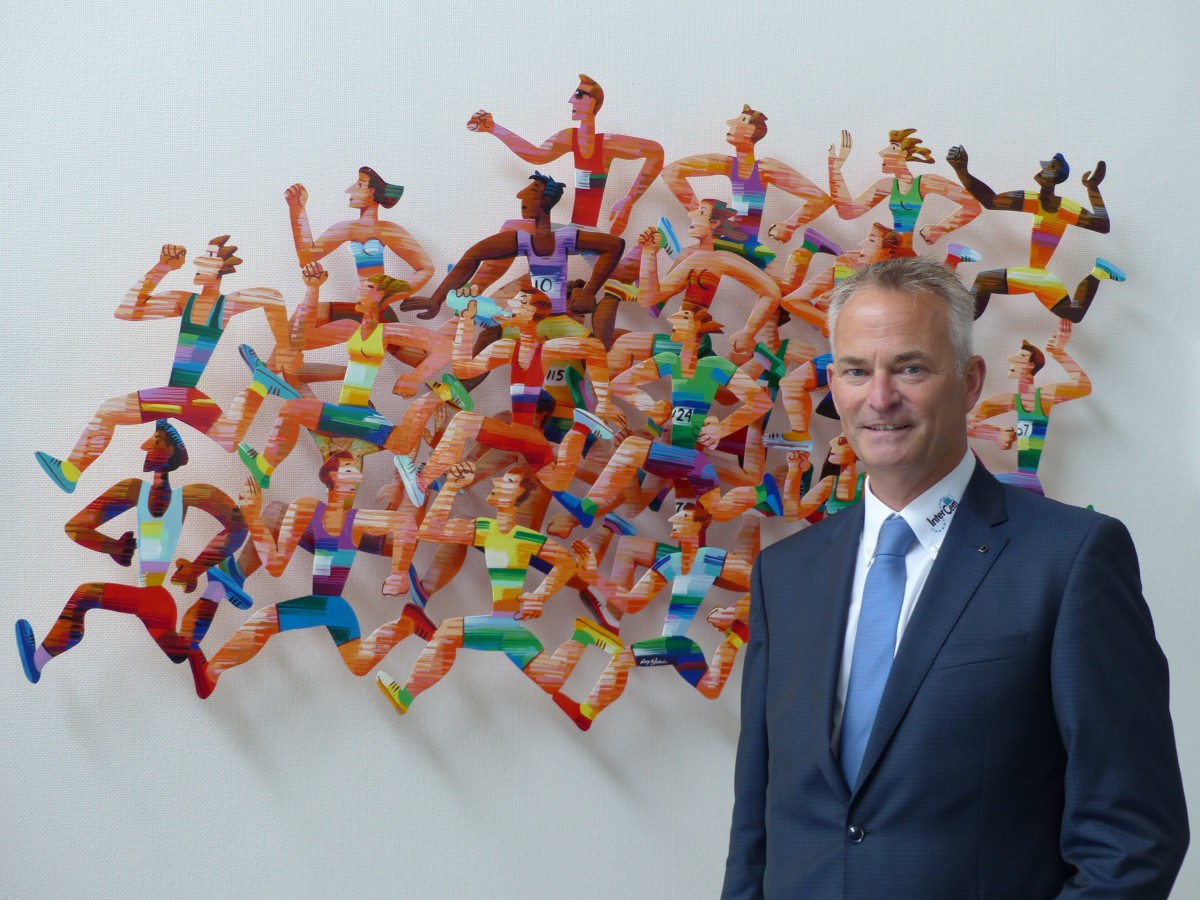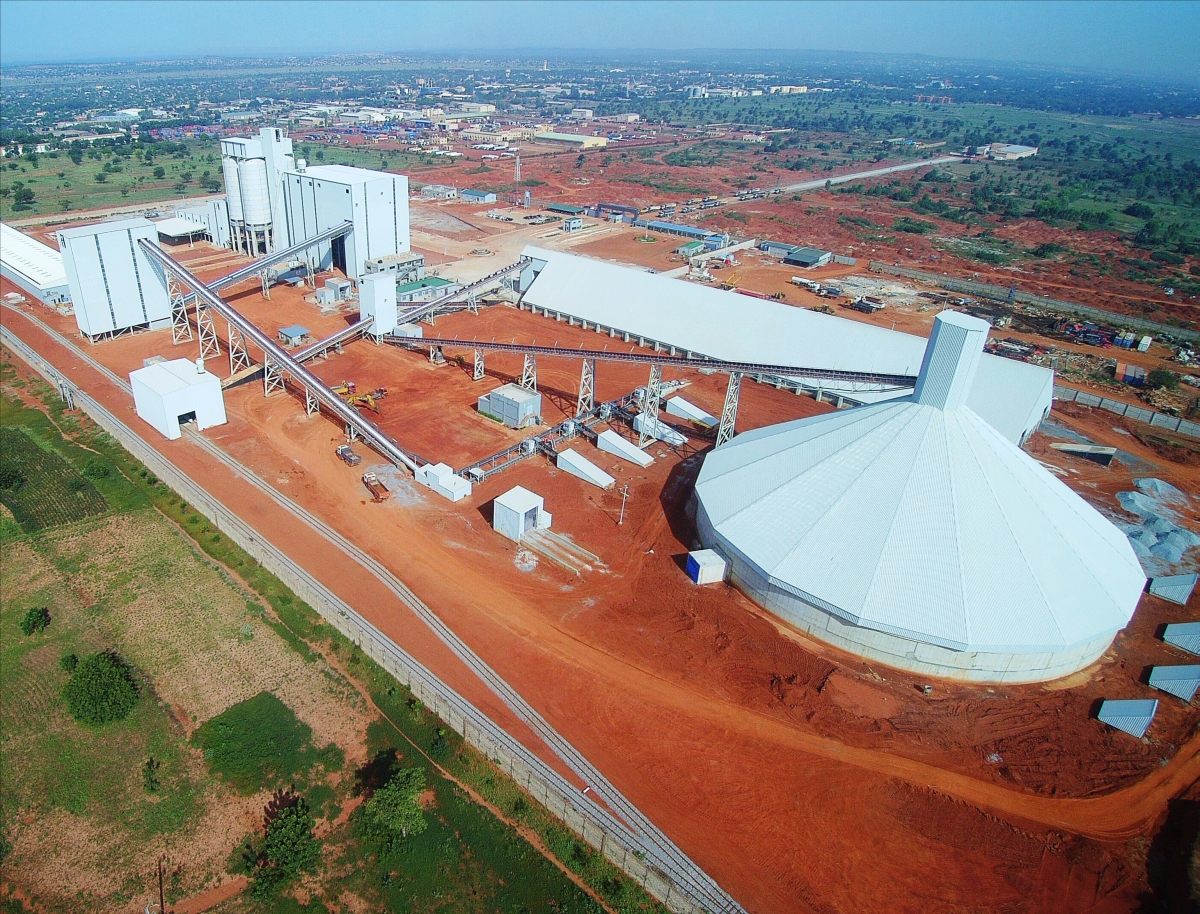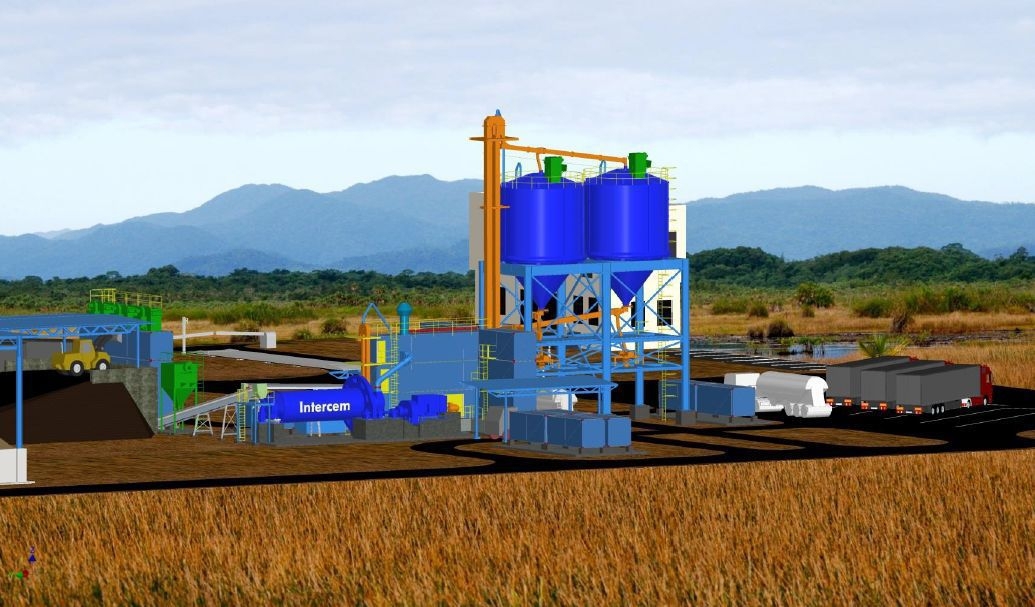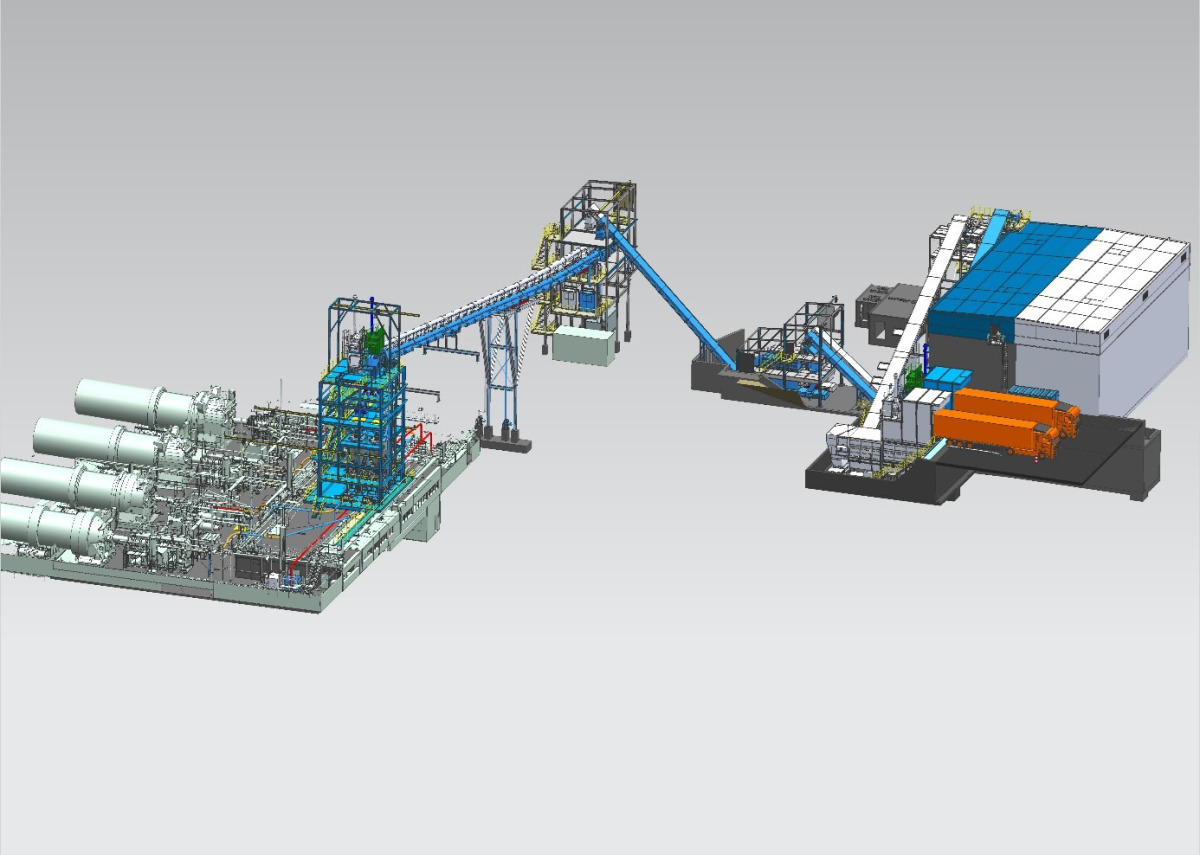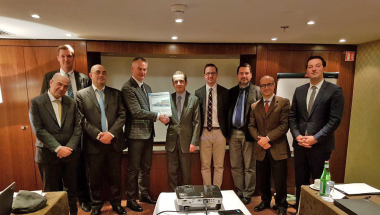Act instead of react
For more than 50 years, InterCem has been a household name in cement plant engineering. The roots of InterCem can be found in the cement plant trade. In the 1970s, old plants were purchased, refurbished and reused for the production of cement. Also a wonderful approach in today‘s often used term of recycling – already lived back then.
With the further development of cement plant engineering, Intercem has also taken up new challenges. In 2003, Intercem Engineering GmbH was founded. The main focus was and still is the development and design of turnkey plants for greenfield projects as well as modernization, upgrading and process conversion. Here, too, the company is active worldwide. Due to the local presence and the cooperation with local partners, an efficient and fast handling of the projects is given.
In 2007, Intercem Installation GmbH was founded. In addition to the two GmbHs already mentioned, a third company, Intercem Cement AG, Zug/Switzerland, belongs to the Swiss Intercem Holding AG, of which they are 100% subsidiaries. The solutions offered by Intercem are tailored directly to the customer‘s requirements. Holistic results are the focus, with project managers working closely with customers, acting as contact persons and being responsible for achieving the agreed targets.
For example, the project completed in 2021, in which Intercem, together with other companies, updated the dosing of secondary fuels at the Solnhof Portland cement plant, led to an increase in energy efficiency and an improvement in the quality of the supplied fuels (ZKG 1 2023, p. 36 ff.). Direct customer contact is important to Intercem; many new projects come about through personal exchange and recommendation by satisfied customers. Above all, it is important to the company to be able to react quickly and flexibly to changing challenges and, as a pioneer, to be able to offer customers future-proof technologies. With an export rate of 80%, Intercem receives orders mainly from West Africa, France, Sweden and Germany. Intercem-Engineering Managing Director Olaf Michelswirth has spent 25 years traveling the African continent, which has grown close to his heart. A great understanding of the people and mentality of this continent has emerged due to which Intercem leads many projects on the African continent.
Intercem’s production is located at the Oelde site, where an area of 10000 m2 is available. Large components and systems can also be manufactured in the production halls. Although Intercem has been on the market for more than 20 years, a startup mentality – acting quickly, taking un-usual paths and tackling challenges directly with customers – is important to him, emphasizes Dipl. Ing. Olaf Michelswirth, managing director of the Intercem Group. Hence the catchy company philosophy: “Fast. Fair. Flexible.”, which the employees embody and pass on in their daily projects.
But Intercem has not forgotten its roots either, still used components are offered here, some of which have been reconditioned before. Under the heading “Cement solutions for every budget” Intercem offers a 3-level system:
New product
Refurbished
Used
The customer is offered everything from individual components or complete lines to entire plants. The professional reconditioning of used equipment is also a forward-looking idea in terms of sustainability. The Intercem Group dismantles, technically inspects, repairs, modernizes, transports, assembles and recommissions production equipment for the cement industry, from individual machines to complete plants. “In doing so, we work with a 3-level system and optionally offer used modernized products, assemble new solutions from used and new components, or erect completely new plants,” explains Olaf Michelswirth.
The cement industry is facing many challenges and serious upheavals. Against the background of very specific CO2 reduction targets that are being formulated worldwide, the demands on cement plant engineering are high. New solutions will have to be found and implemented over the next few years. The time schedule for this is tight. The editor-in-chief of ZKG Cement Lime Gypsum spoke with Dipl. Ing. Olaf Michelswirth about the future of cement plant construction and the biggest challenges and how Intercem can respond.
Mr Michelswirth, first of all congratulations on the 20th anniversary of Intercem Engineering GmbH. On your homepage, the sentence “InterCem – All solutions from a single source” immediately catches the eye - perhaps as an introduction, which solutions do you offer?
Intercem focuses on engineering and the resulting projects. Plants are planned and implemented as optimizations, extensions and new plants. During the realization, the ‘latest technologies available’ are integrated as far as possible, which must correspond with the conditions and existing systems. These technologies come partly from our own house or are generated by qualified and certified manufacturers.
Safe operation and maintenance cycles of the plant components must be ensured by trained personnel in training units. Due to these synergies and orientation, Intercem is neutral to a high degree in the choice of individual components. We can concentrate on our project and customer specific focus. We are increasingly seeing a development in which extensions and new plants are being requested from Intercem, from the geotechnical survey and civil engineering to the complete supply of plant components, commissioning, and production supervision.
What are currently the biggest challenges in the cement industry?
Essentially, CO2 emissions have to be reduced in order to be able to produce cement as little or even CO2-neutral as possible. To this end, manufacturers are responsible for implementing appropriate projects. These optimization areas include significantly increasing the use of alternative fuels and reducing the clinker content of the cement.
Furthermore, standards must be adapted to specify cement types that permit the admixture of lower quantities of clinker. The basis required for this must be supported politically.
Where is the future development in cement plant engineering heading, especially in view of the cement industry‘s generally declared goal of CO2 -neutral production in 2050?
Reducing the amount of clinker in the cements will play a major role. Alternative aggregates are available for this purpose, such as LC3 as calcined alumina. Another focus is the use of alternative fuels for the operation of rotary kilns.
Where are you focusing your efforts to move the cement industry forward on the road to climate neutrality?
We are still a long way from the end of the road in the use of alternative fuels. It is noticeable that the cement manufacturers have also been shaken up. Today we are getting projects, also worldwide, that were not considered before. Investments are now also being made. In some cases, we cannot even meet the demand. In the meantime, up to 95% of secondary fuels are used in the rotary kilns, along with homeopathic quantities of coal/oil.
However, the cement industry also has to think long-term. At present, it is partly more about short-term profit. We will not achieve the CO2 targets with this.
At the moment, we have a massive development in areas that used to be ridiculed, that were subordinate. Now projects are being planned and implemented there. These are always clear indications that we need to be faster.
What influence do alternative clinker substitutes have on cement plant construction?
The production of calcined alumina/LC3, for example, is based on existing plant technology, which must be optimized for the challenging production. For this purpose, there are two possibilities of production, which can be compared promptly on the basis of available operating results.
It has been proven that calcined alumina has a very positive effect on the strength of concrete, among other things. The substitution depends on the type of cement to be produced. However, this proportion may well be greater than 30%!
What potential do you see in hydrogen?
In principle, it’s an interesting topic. We have to take the first steps now and see where it leads. Of course, something has to happen worldwide in the direction of CO2 emissions. Globally, we need that. But whether there is an affordable, practicable solution at the moment is questionable. In the end, it must be possible to pay for all the efforts. But still, this development has to be supported, we don’t have many other options.
What new developments are currently in preparation at Intercem or have currently been launched on the market?
Intercem is currently commissioned with the construction of a refuse derived fuel plant, which supplies 4 rotary kilns - from storage to the dosing of various refuse derived fuels into the rotary kilns. As our main focus is on engineering, we have the possibility to use the most different plant components with the best possible technology. This is a significant unique selling proposition that is valued.
Intercem is also active in the field of calcined alumina production. For this purpose, we cooperate with universities and companies with experience in process technology. We expect good progress, which will be put into practice in an association of companies.
Mr Michelswirth, Intercem is active worldwide. In an interview, you said that the company has a particular focus on Africa and also travels to this continent time and again. How is the cement industry positioned in Africa and which active projects is Intercem currently supporting?
I had my first experience in Africa about 25 years ago. At that time, the cement plants could be seen from afar from an airplane. The so-called ‘yellow stripes on heaven’ could not be overlooked. The use of filter technology was not in focus.
Today, one increasingly encounters very modern movements equipped with the latest available technology. Surely, there are still many old plants to optimize, which is the nature of a development.
Increasing competition among manufacturers raises awareness of the value of production costs and the availability of plant engineering. Therefore, the engineering and plant technology with a high quality are increasingly required.
Due to this, Intercem has been able to realize a large number of projects in Africa. These range from the optimization of plants, the recommissioning of a complete cement plant from the 1970s, to the construction of new grinding plants with ball mills and vertical mills.
Currently, a grinding plant in West Africa is being expanded and a new approx. 2.1 million t/a grinding plant with a VRM is being built in West Africa. In addition, we have been commissioned to provide the engineering for 3 further grinding plants in order to realize them in a timely manner.
A more personal question at the end, how do you see the future viability of the cement industry worldwide, also against the background of increasing globalization? Are we in a position to effectively counter climate change?
Basically, I am convinced that it will be possible to master the challenges. Due to the different orientations and interests of the various countries, the global goals are less likely to be achieved in a timely manner. Refreshingly and with great enthusiasm, however, I can see a change in thinking on the part of well-known and established cement manufacturers who are pushing ahead with projects to reduce CO2 emissions.

